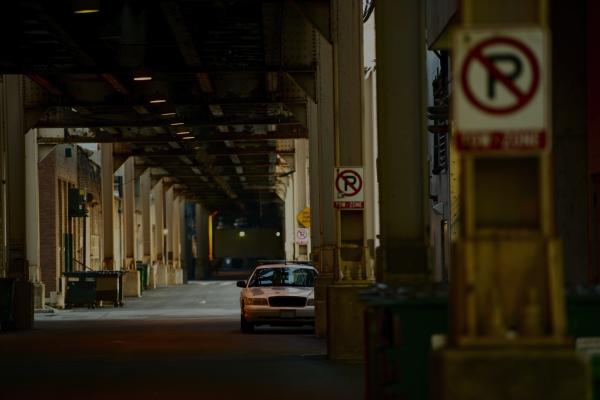Mayor Rahm Emanuel and the Chicago Police Department have trust issues.
On Dec. 1, the Chicago mayor fired the city’s police superintendent, Garry F. McCarthy. Somebody had to pay the price for the disastrous handling of the brutal murder of Laquan McDonald by a Chicago police officer.
“I have a lot of support and confidence in the work and results he has done,” Emanuel said, just before firing McCarthy.
“But our goal is to build the trust and confidence with the public … At this point — in this juncture of the city — he has become an issue, rather than dealing with the issue.”
McDonald was a 17-year-old kid, gunned down by a police officer as he was walking away. The dashcam video shows Officer Jason Van Dyke shooting McDonald 16 times in the back.
But the official police story after the murder was that McDonald “refused to comply with orders to drop the knife and continued to approach the officers.”
The officers. Multiple officers witnessed the shooting, but none of them blew the whistle. Instead, they participated in a huge cover-up. It took 400 days for the video to be released. Why did it take so long?
Many speculate it’s because Emanuel was in the middle of a close election and the video would have hurt his chances of winning. To add fuel to the cover-up conspiracy, 86 minutes of footage was deleted from a Burger King security camera, including footage of the shooting. According to NBC Chicago, “a Burger King district manager said police deleted the security footage after spending more than three hours in the restaurant.”
Yeah. Emanuel and the Chicago police have trust issues.
Because in the end we are left with this fact: Laquan McDonald is another black body that didn’t matter.
After all, just eight days after McDonald was murdered, Ronald Johnson was murdered by Chicago police. The police report looks eerily familiar. It claims that Johnson pointed a weapon at the police when he was killed.
But the family has seen the dashcam video and they claim it tells a different story.
“The dashcam video … clearly shows that he was not carrying a weapon, nor did he ever turn and point anything. The police planted that gun because there’s no way anything would have stayed in Ronald Johnson’s hand after he was shot,” they said through their attorney.
Indeed, the system is corrupt. It is obvious that this is bigger than Garry McCarthy.
As David Graham suggests in the Atlantic, McCarthy is Mayor Emanuel’s scapegoat. In the midst of the social crisis within the Chicago Police Department, somebody had to be sacrificed. It wasn’t going to be Emanuel. So McCarthy got the axe.
Of course, that’s not going to change the corrupt system that is the Chicago Police Department. I’m all for holding people accountable for the injustice they commit. But we need to know that the corrupt system is bigger than McCarthy. It’s bigger than Emanuel. It’s bigger than the Chicago Police Department.
Charles Blow of the New York Times says this about the “system”:
… Having covered so many of these cases in the last couple years, it strikes me that we may need to push back and widen the lens so that we can fully appreciate and understand the systemic sociological and historical significance of this moment in our country’s development.
Blow is absolutely right. He goes on to comment on the systemic racism of the “war on drugs,” as well, but I would also add the systemic racism of poverty, segregation, inequality among schools, and the new Jim Crow of the prison industrial complex.
Blow ends on a message of hope:
This can be overcome and occasionally has been, but it requires a transcending of self-interested racial tribalism, an ability to see the issue as an intolerable human cruelty rather than as an acceptable and even warranted condition of another, and that can be a high hurdle to clear in this country.
High hurdle indeed. Blow doesn’t say this, but as a white man I feel like I must: White people are responsible for the racist system.
That statement is not to make white people feel guilty. This isn’t about feeling guilty. It’s about being honest. At this point, I can sense many white people reading this and getting defensive. If that’s you, that defensiveness is a sign that you have implicit racism embedded deep in your psyche.
I know — because it’s embedded within me, too.
In her book More Beautiful and More Terrible, Dr. Imani Perry says that we are in an age of “post-intentional” racism. I am not intentionally racist, for example, but I do participate in racist system that creates unjust economic, educational, judicial, healthcare, and housing policies.
Dr. Imani provides numerous examples in her keynote address at the 2014 Justice Works conference in New York, including the fact that doctors are less likely to order tests for black patients than white,
Employers are less likely to hire Latinos or African American than white people with identical qualifications … juries and judges are both more likely to recommend harsher sentences for darker skinned offendants, … black people pay more than others for the same car or house …
Indeed, the system is corrupt. Blaming McCarthy or Emanuel or the Chicago Police Department might make white people feel good about ourselves. We will feel like we are on the side of justice. But here’s the difficult truth about the “system” — we white people participate in the racist social structures that lead to unjust policies in our economic, educational, judicial, and housing policies.
And nothing is going to change those racist structures until we admit and repent of our participation in them.
Got something to say about what you're reading? We value your feedback!

